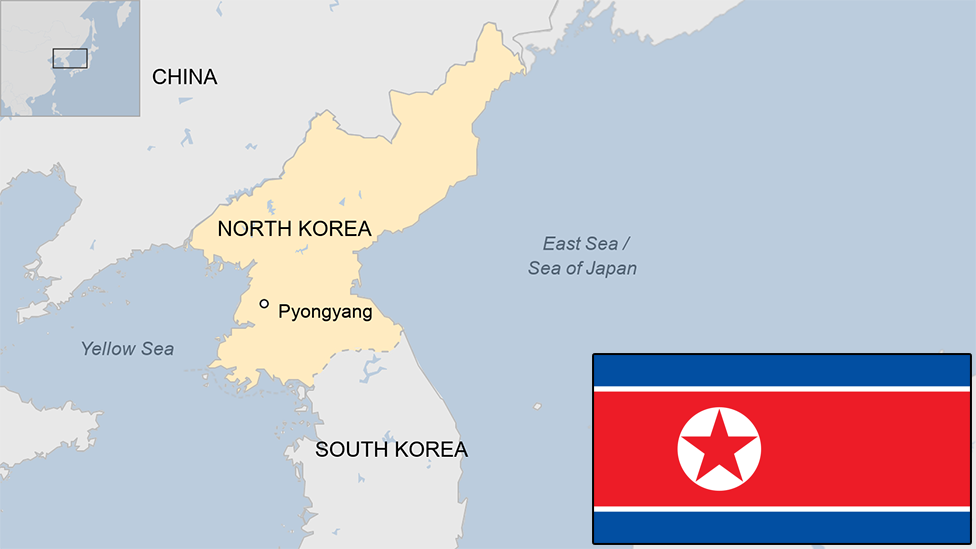Mallima speed! How to decode North Korea's rhetoric
- Published
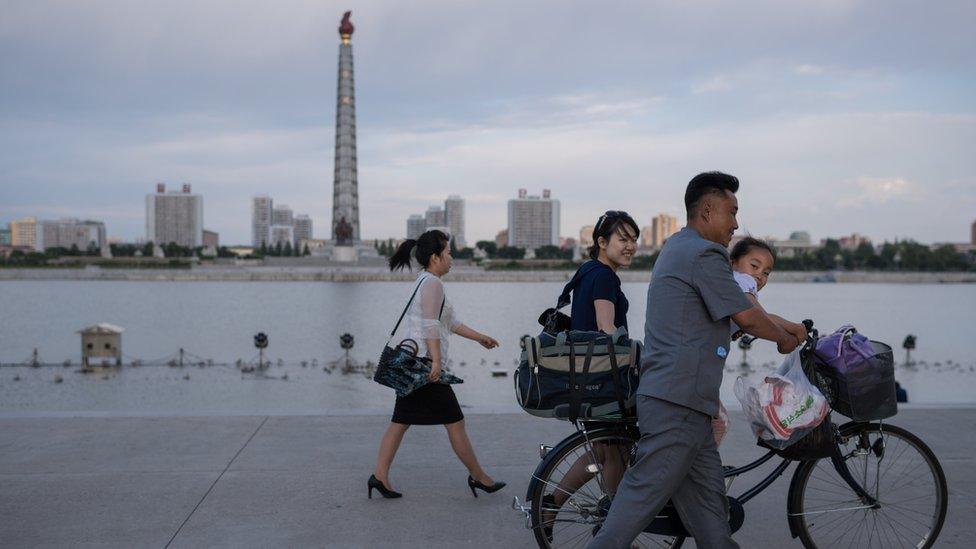
Pyongyangites go about their daily business with the Tower of Juche in the background
North Korean media often dips into its own vocabulary to describe what's going on in the country, using words like "Songun" and "Juche" on a daily basis.
These expressions appear as part of the glorification of its leadership, while colourful language such as "thrice-cursed" is used against the US, Japan and South Korea.
As the communist country marks the founding anniversary of its ruling Workers' Party, here is a selection of some frequently-used ideological phrases and what they mean to the outside world...
Songun
Songun is North Korea's military-first policy, started by then leader Kim Il-sung in 1960 as a way to rule the country.
State media showered praise on his son and successor, the late Kim Jong-il, on 8 October this year to celebrate the 20th anniversary of him becoming the Workers' Party general secretary. "His outstanding political calibre was fully displayed in strengthening the WPK into a guiding force of Songun (military-first) revolution", a report in KCNA news agency said.
"The Day of Songun" is a national holiday in North Korea, marked on 25 August.
The Songun policy is being taken forward by Kim Jong-il's son and current leader Kim Jong-un, who has expedited the pace of the country's nuclear and missile programmes despite international warnings and sanctions.
Juche
This refers to North Korea's ideology of self-reliance, named by founder Kim Il-sung.
The word was also used extensively in state media coverage of the Workers' Party plenum held on 7 October. References included remarks by Kim Jong-un urging "unyielding efforts" to develop the economy and make it "Juche-based".
A monument called the "Juche Tower" is located in Pyongyang.
North Korea also uses the Juche Calendar, which came into effect in 1997. It starts with the birth of founder Kim Il-sung in April 1912. For example, the year 2017 is written as Juche 106 in state media reports.
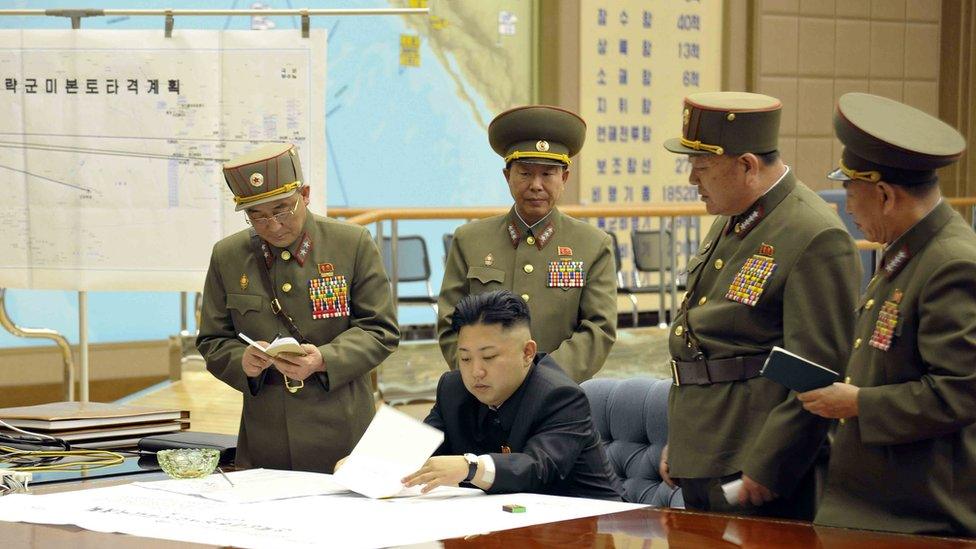
Kim Jong-un has expanded on Juche and Songun to justify the country's nuclear weapons programme
Byeongjin
This is North Korean leader Kim Jong-un's signature policy, which seeks simultaneous development of nuclear weapons and the economy.
At a rare party congress in May 2016, Kim pledged to pursue the policy, which was first announced in 2013.
At the recent party plenum on 7 October, Kim Jong-un said the "prevailing situation and the reality" had shown that the party was "absolutely right" to do so, KCNA reported.
Chollima
Chollima is an imaginary horse with wings which can run at least 400 km a day.
North Korea launched the Chollima Movement in the late 1950s as an economic campaign to rebuild its economy after the 1950-53 Korean War.
North Korea has a Chollima Steel Complex which is one of the biggest plants in the country.
Mallima
Mallima also refers to an imaginary horse, but one that can run very long distances at extremely fast speeds - 10 times faster than Chollima.
The "Speed of Mallima" is often used in the media to coax North Koreans to work harder to achieve the country's economic goals.
In March, ruling party paper Rodong Sinmun wrote: "To be riders and front-runners in the Mallima movement is the bounden duty and noble obligation of our generations who were born in the motherland of Juche and grew up learning the epic of the Chollima age."
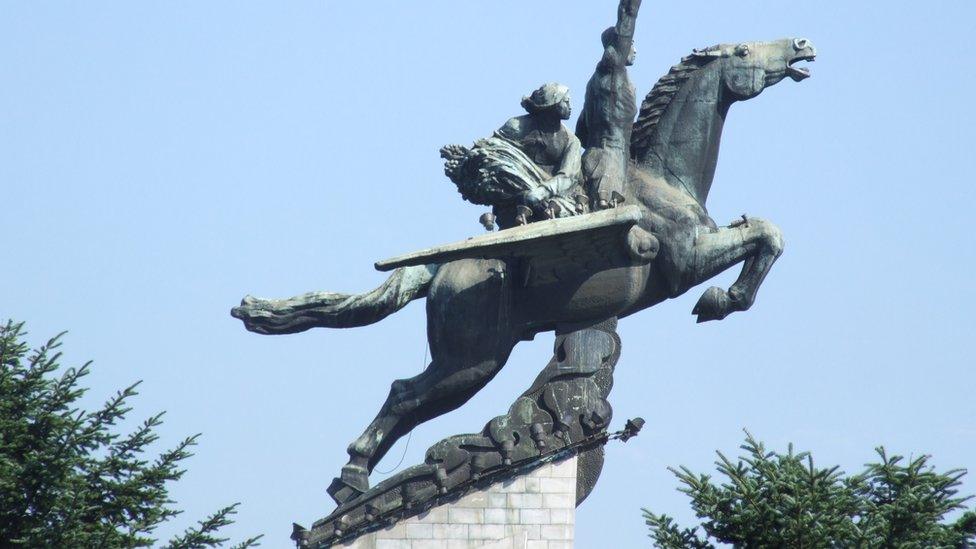
The Chollima horse is fast, but it's not Mollima Speed
Kimilsungism and Kimjongilism
These words have been coined in praise of late leaders Kim Il-sung and Kim Jong-il, and refer to their philosophies of Songun and Juche.
State media say these form the basis of the country's path and are responsible for its advances as a "nuclear power" despite threats by the US.
"Korean-style socialism has victoriously advanced along the orbit of Juche... which no formidable enemy dares to provoke. This is a clear proof of the validity and vitality of great Kimilsungism-Kimjongilism", an article in Rodong Sinmun said in late March.
Both leaders also have flowers named after them. A special orchid has been named Kimilsungia after the country's founder, while Kimjongilia is a red begonia.
Loyalty campaigns
These campaigns are a method employed by the North Korean regime to mobilise its people to maximise production in a fixed period of time.
In 2016, North Korea organised the so-called 70-day and 200-day campaigns of "loyalty", in an attempt to give out the impression that it was unaffected by international sanctions over its nuclear and missile tests.
Similar campaigns are mentioned in the media in the event of droughts or floods to project the country's strength in overcoming natural disasters.
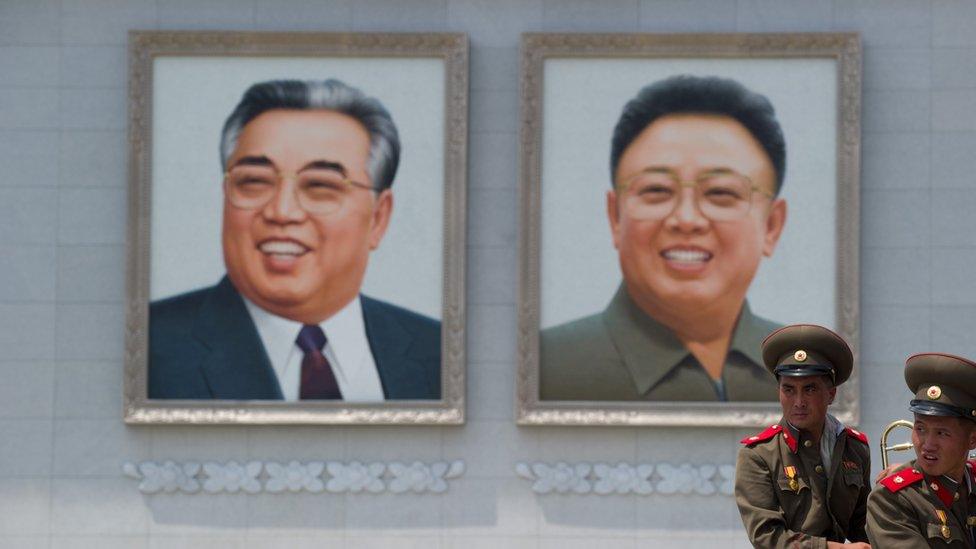
Portraits of Kim Il-sung and Kim Jong-il hang from every public building and in every home
Arduous March
This refers to a period of severe famine in North Korea in the 1990s, which led to the death of around three million people in the country.
The phrase was used extensively in the state media in early 2017 to prepare the people for economic difficulties owing to international sanctions.
Mount Paektu
The ruling Kim family is described as the "Mt Paektu bloodline" in the country. Only members of the Kim family (Kim Il-sung, Kim Jong-il and now Kim Jong-un) have ruled the country since its establishment in 1948.
The phrase "Mt Paektu bloodline" is used to encourage ordinary North Koreans to pledge loyalty to their leadership. The "Great persons of Mt Paektu" are the three rulers of the Kim bloodline, plus Kim Jong-suk who was Kim Il-sung's first wife and Kim Jong-il's mother.
Mount Paektu, on the Sino-North Korean border, is the highest peak on the Korean Peninsula. It is considered to be the mythical birthplace of the Korean people, and is also showcased as the "sacred origin" of Kim Il-sung's Korean revolution.
According to North Korean propaganda, Kim Jong-il was born in Samjiyon on the mountain, although he's widely considered to have been born in Russia.
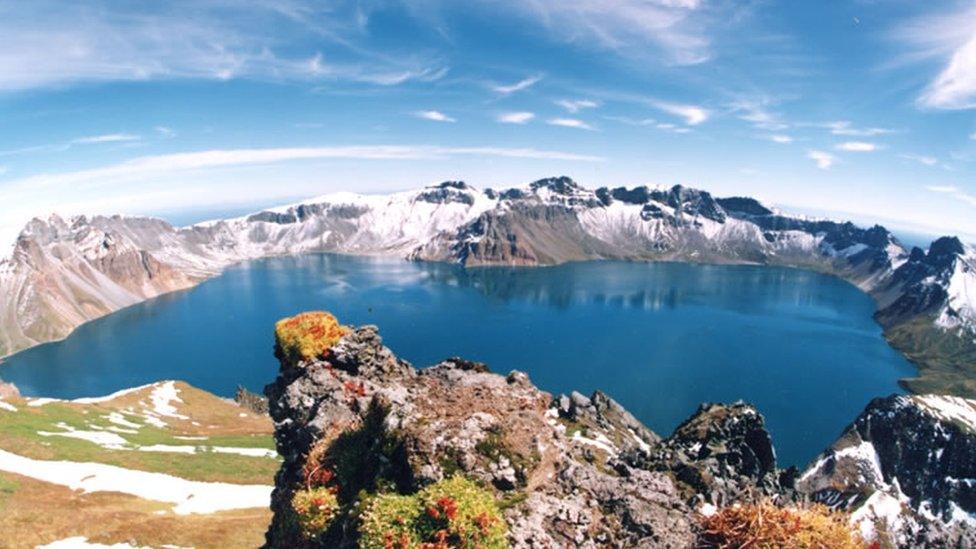
Mount Paektu is a volcano which last erupted over 1,000 years ago
Thrice-cursed
This refers to a phrase used in the North Korean media which means that if a serious - usually ideological - crime is committed by a person, the punishment will be meted out to three generations of the family.
The phrase has been used frequently to lash out at state enemies. Former South Korean President Park Geun-hye (already the daughter of thrice-cursed Park Chung-hee) has been attacked in North Korean media as "paying dearly for her thrice-cursed crimes as she had turned south Korea into a graveyard of freedom".
US President Donald Trump was also on the end of KCNA's sharp tongue. It called his speech at the UN "thrice-cursed sophism made by the mentally deranged hooligan".
On-the-spot guidance
This is a term used to describe the appearances by North Korean leaders. The activities are a useful way for North Korea watchers to track the leaders' whereabouts in the secretive society, and also get an insight into their health.
State media regularly releases reports and photos on the activities of current leader Kim Jong-un.
Interestingly, North Korean leaders are always quoted as giving guidance during their inspections of military or economic facilities, and are surrounded - without fail - by men in uniform taking notes.
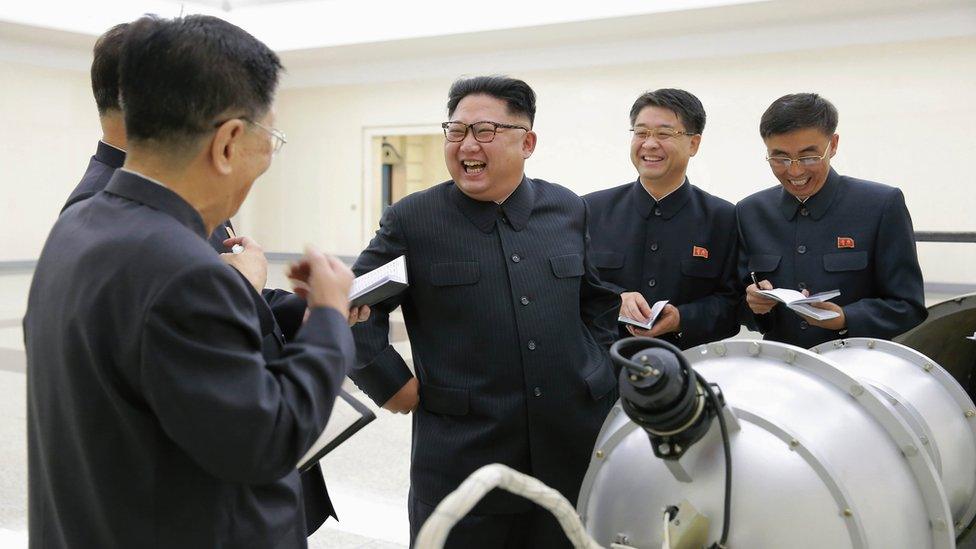
On-the-spot guidance with a nuclear bomb and the ever-present notepads
BBC Monitoring, external reports and analyses news from TV, radio, web and print media around the world. You can follow BBC Monitoring on Twitter, external and Facebook, external.
- Published24 August 2017
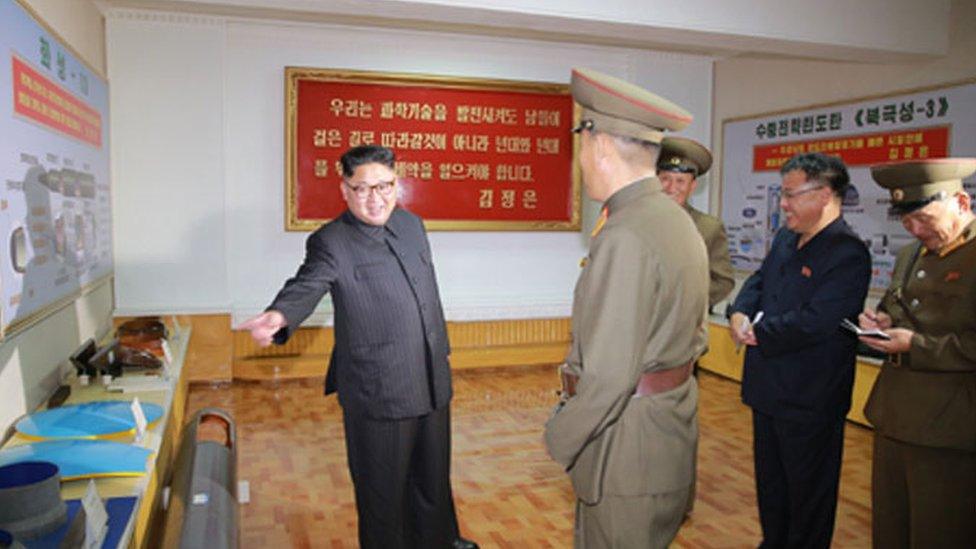
- Published9 August 2017
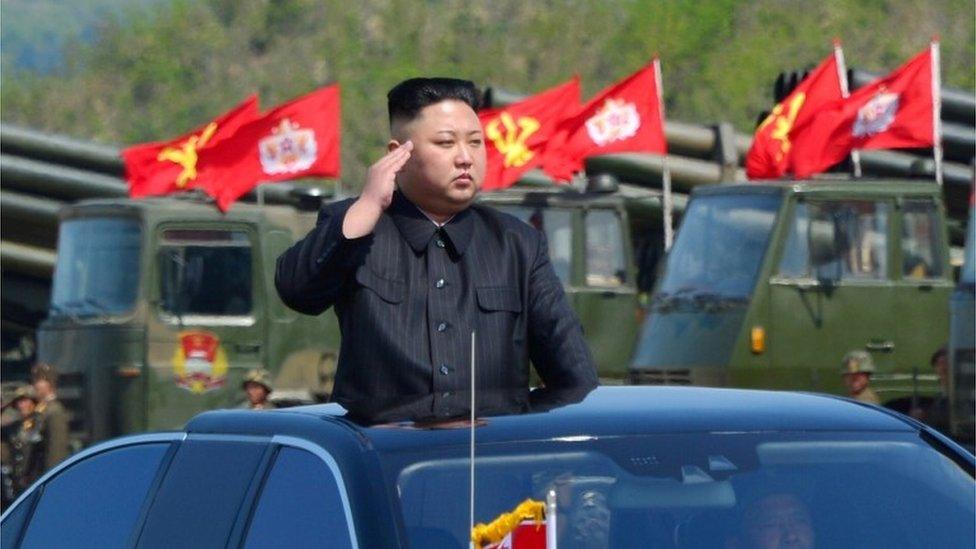
- Published13 August 2017
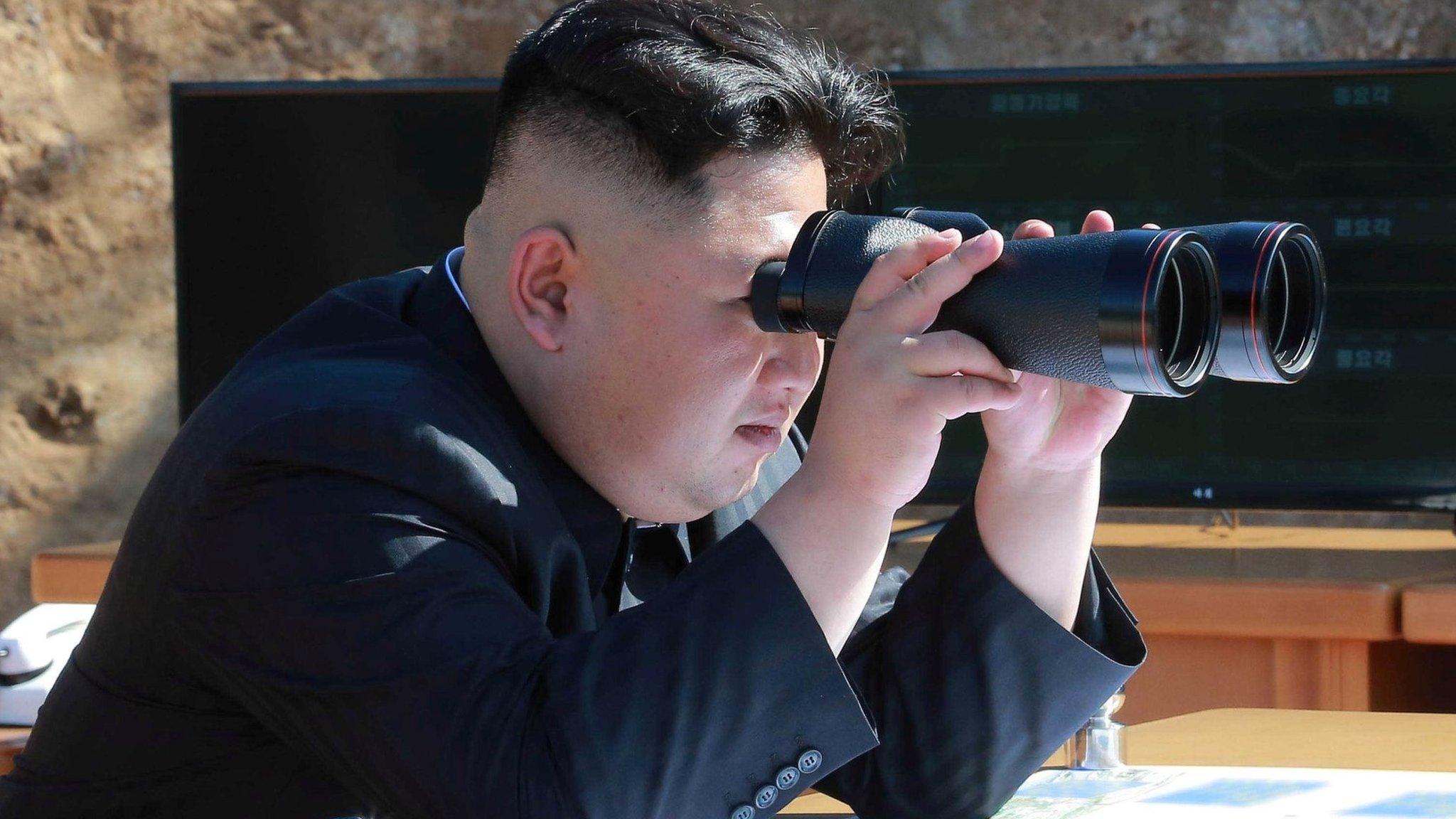
- Published19 July 2023
